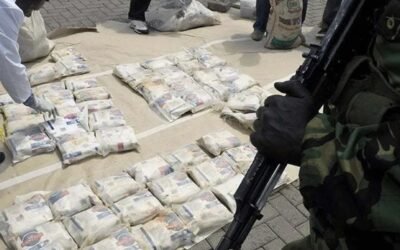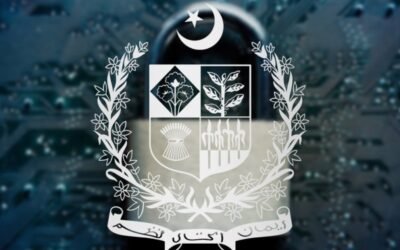The Rule of Law in Pakistan faces a profound crisis, particularly evident in the disproportionately low prosecution and conviction rates for elite crime. This enforcement gap for powerful individuals involved in white-collar crime, corruption, and environmental violations undermines public trust and perpetuates a cycle of impunity.
Systemic Blocks: Why Convictions Fail
The inability to effectively prosecute and convict powerful individuals for white-collar crime and corruption in Pakistan stems from deeply entrenched systemic challenges. One primary issue lies in the initial stages of the criminal justice process: flawed First Information Reports (FIRs), often due to false statements or misrepresentation, and weaknesses in investigations.
However, Investigation officers frequently lack the professional competence, resources, and equipment needed for complex white-collar cases, and there are concerns about deliberate evidence tampering.
Furthermore, the prosecution department is often seen as inefficient, while prosecutors, in turn, blame the lack of professional competence of investigation officers. The judiciary, burdened by an overwhelming caseload, also contributes to delays in the disposal of cases, further weakening the overall process.
The criminal justice system’s historical legacy of poor governance, inflexibility, maladministration, and a lack of cooperation between investigation and prosecution wings significantly hinders effective accountability.
How Politics Corrupts Justice
Political interference stands as a monumental barrier to the rule of law in Pakistan, particularly when it comes to elite crime. Governments have historically meddled with the judiciary, aiming to garner political support or stifle dissent.
This interference can manifest in the politicization of judicial appointments, where merit is often sidelined in favor of political affiliation, leading to a judiciary susceptible to external pressures. Judges, especially in sensitive cases, can be influenced to make decisions that favor the government, sometimes to protect themselves from dismissal.

Such biases have a devastating impact on the legal framework, leading to unequal application of the law and eroding the neutrality of the judiciary. This recurring political and military influence undermines judicial independence, compromises democratic processes, and directly impacts the ability to pursue cases against powerful individuals impartially.
You May Like To Read:
Institutional Weaknesses
Beyond political interference, intrinsic institutional weaknesses plague Pakistan’s justice system, particularly in handling elite crime. The fundamental issue is that power and authority are often exercised by individuals rather than by institutions.
This makes institutions susceptible to manipulation by elite political power and status. There is a prevalent lack of accountability across various governmental and regulatory bodies, where poor and illegal decisions, non-compliance with rules, and corrupt practices by officials often go unpunished.
For example Pakistan’s police force is plagued by endemic corruption, and police-brutality fostering deep public distrust. This isn’t merely a few bad apples –it’s a systemic issue where political interference and a lack of accountability enable widespread illicit practices.

Source: Dawn.
Citizens routinely face demands for bribes for fundamental services, such as simply registering a First Information Report (FIR). For instance, it’s a widely reported phenomenon that individuals lacking political connections or financial influence often cannot even get their initial complaint formally recorded, especially if it implicates powerful figures.
This “Thana culture” of venality and abuse transforms the police into a tool of oppression for the elite, rather than a protector of the common citizen, thereby eroding all faith in the institution.

Source: Pakistan Today
Environmental Violations and Access to Justice
Prosecuting environmental violations by powerful individuals in Pakistan faces similar, if not more acute, challenges. While environmental laws and regulatory frameworks exist, their implementation, enforcement, and compliance are often weak due to a range of capacity issues and other challenges.
Access to environmental justice remains severely limited, especially for vulnerable and marginalized communities. Despite international recognition of environmental justice as a principle of good governance, the country lags in ensuring an effective legal response.
The current legal provisions and penalties for environmental harm are often inadequate for the severity of the offenses. Scientific uncertainties and fragmented decision-making authority in environmental cases further complicate enforcement, often leading to regulatory or administrative solutions rather than rigorous criminal prosecution, particularly when dealing with corporate offenders who possess substantial resources and influence.
Impact on Public Trust in the Justice System
The consistent failure to prosecute and convict powerful individuals for white-collar crime, corruption, and environmental violations has severely eroded public trust in Pakistan’s justice system.
There is a widespread perception of impunity, with a significant majority of Pakistanis believing that high-ranking government officers known to be embezzling funds would not be prosecuted and punished. This perception of a system that favors the elite and is “cruel to the poor” undermines the very credibility and legitimacy of the rule of law.
When criminals, especially those with influence, are not held accountable, it diminishes the public’s confidence in law enforcement agencies, the courts, and the government’s commitment to justice. This erosion of trust discourages citizens from seeking formal redress, often pushing them towards informal justice mechanisms, and ultimately weakens the social contract between the state and its citizens.




























